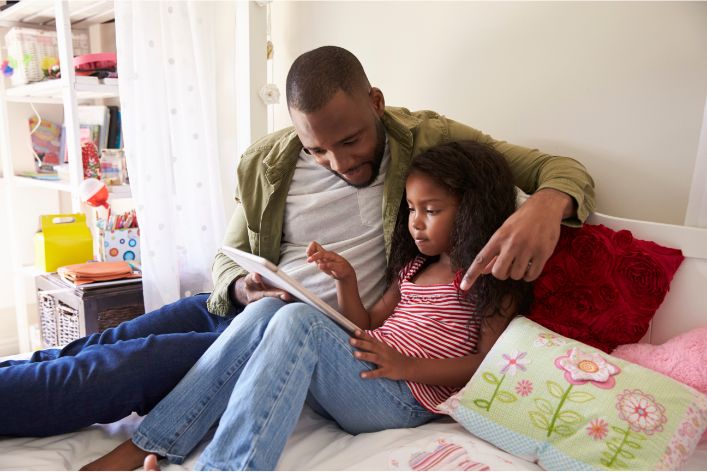Introduction
Nigerian folktales, traditional stories passed down through generations, teach moral or life lessons and impart values to children, reflecting the country’s rich culture.
Studying child development is crucial as it provides insight into the physical, cognitive, and emotional growth of children. This knowledge is essential in understanding how folktales shape the development of children by providing them with a sense of identity, morality, and a deeper understanding of the world.
Through an examination of the impact of Nigerian folktales on child development, we gain a better understanding of how these stories shape the experiences and perspectives of children growing up in Nigeria.
In this blog post, we will explore the significance of Nigerian folktales in child development and the critical role they play in shaping the cultural identity of Nigerian children.
Finally, let’s explore how Nigerian folktales actively foster positive growth and development in children. Whereby, studies show that children who grow up listening to folktales demonstrate greater cognitive flexibility and a deeper understanding of cultural norms, which are valuable skills for navigating a complex world.
Read: The Role of Family Values in Nigerian Parenting Styles
Overview of Nigerian Folktales
Different ethnic groups across Nigeria actively tell Nigerian folktales, which are captivating and rich in cultural significance. Each group has its unique storytelling style and tradition.
Elders actively pass down these folktales to younger generations during social gatherings, festivities, and ceremonies. Some of the most common Nigerian folktales are animal fables, myths, and legends.
Examples of popular Nigerian folktales
One popular Nigerian folktale is “The Tortoise and the Birds.” This story tells the tale of a lazy tortoise who deceives some birds into carrying him to a feast. When they arrive, the tortoise eats all the food and then tricks the birds into carrying him back home.
Another popular Nigerian folktale is “The Lion and the Fox.” This story tells of a greedy lion who steals a fox’s prey. The fox seeks revenge and tricks the lion into falling into a trap.
Analysis of Themes in Nigerian Folktales
Nigerian folktales often have themes that relate to morality, ethics, bravery, and survival. For example, “The Tortoise and the Birds” teaches the importance of hard work and honesty. The tortoise’s dishonesty leads to his downfall.
“The Lion and the Fox” teaches the importance of intelligence and cunning. The fox’s actions lead to the lion’s defeat. Other popular themes in Nigerian folktales include respect, wisdom, courage, and perseverance.
The Impact of Nigerian Folktales on Child Development
Nigerian folktales have a positive impact on children’s cognitive, social, and emotional development. These stories help in developing children’s imagination, critical thinking skills, and problem-solving abilities. They also improve communication skills as children learn to express themselves through storytelling.
Nigerian folktales also promote cultural awareness and appreciation of diversity. Children from different ethnic backgrounds can learn about other Nigerian cultures through these stories. They learn about different customs, beliefs, traditions, and values.
Furthermore, these stories help in developing empathy and emotional intelligence. Children learn to identify with the characters and understand their motivations, emotions, and feelings. They learn to appreciate the beauty of storytelling and the importance of passing down stories from generation to generation.
Parenting Made Just for You
Get personalized Parenting Solutions tailored to your child’s needs. Transform your parenting journey with expert guidance in 1-3 days.
Get StartedGenerally
Nigerian folktales provide entertainment and valuable lessons for children. They are a powerful tool for developing children’s cognitive, social, and emotional development.
These stories promote cultural awareness, empathy, and critical thinking skills. Nigerian folktales have been an integral part of Nigerian culture, and their impact on child development cannot be overstated. They are a treasure to be cherished and passed down for generations to come.

Read: Building Resilience in Nigerian Children: A Step-by-step Guide
Child Development
Child development refers to the physical, emotional, and mental growth that occurs from birth to adolescence.
The earliest stage of child development is the newborn stage, during which infants develop their senses.
The next stage is the infant stage, during which they learn to crawl, walk, and talk.
The toddler stage comes next, during which children display more independence and explore their environment.
Preschoolers come next, and they undergo a period of rapid cognitive development.
Finally, the school-age stage, during which children’s interests expand beyond the family and into the larger world.
Storytelling is an important aspect of child development because it can help children develop their language and literacy skills.
Folktales, in particular, can offer valuable lessons and morals that help children in their development.
Nigerian folktales, in particular, are an excellent source of lessons for children that are unique to Nigerian culture.
For instance, the story of the Tortoise, a popular Nigerian folktale, teaches children the importance of using wit and intelligence in difficult situations.
Other Nigerian folktales, like “Why Mosquitoes Buzz In People’s Ears” and “The Lion’s Whiskers,” teach children about the consequences of their actions.
Unveil the Perfect Name that Tells Your Family's Story
Let us help you find a name that embodies your family's values, traditions, and dreams. Our personalized consultation weaves cultural insights to create a name that's uniquely yours.
Get StartedBy hearing these stories, children are learning about complex social issues in a way that is accessible to them.
Furthermore, folklore can help children understand their cultural identity and heritage, giving them a sense of place and belonging in the world.
Moreover, storytelling can help children develop empathy and compassion by introducing them to different perspectives and experiences.
Through these stories, children can learn about the struggles and triumphs of different characters and relate them to their own experiences.
In essence, child development is an essential part of a child’s growth and should be taken seriously.
Storytelling, particularly Nigerian folklore, can play a significant role in the development of language, literacy, social skills, cultural identity, and empathy.
Parents and educators should encourage the telling and reading of Nigerian folktales, as they provide valuable lessons to children and are a fun way to learn.
Read: Fostering Healthy Social Relationships: Nigerian Kids’ Guide
Impact of Nigerian Folktales on Child Development
Nigerian folktales have been an intrinsic part of the country’s culture for centuries.
These stories, passed down from generation to generation, have not only served as a form of entertainment but have also had a significant impact on the development of children in numerous ways.
Development of Imagination and Creativity
Nigerian folktales are often filled with fantastical and magical elements that encourage children to use their imagination. As they listen to the stories of talking animals or heroic feats, they are transported to new worlds and encouraged to envision new possibilities.
This exposure to imaginative tales helps children develop their creativity as they learn to think outside the box and come up with their own stories and ideas.
Furthermore, as children listen to folktales, they are taught to use their imagination to create vivid mental images of the stories.
Through visualizing the settings and characters, children develop their ability to visualize, an important skill that can benefit them throughout their lives.
Development of Moral Reasoning and Empathy
Many Nigerian folktales are designed to teach children valuable life lessons and morals, often through the use of fables. These stories encourage children to connect with the characters and the lessons they learn.
As children listen to the stories, they are encouraged to consider the moral implications of the characters’ actions and to question whether they would make the same choices in similar situations.
Through these tales, children develop their moral reasoning skills, which are essential to navigating the complexities of relationships and social situations.
They also develop empathy as they learn to understand and relate to the characters in the stories. By identifying with the struggles of the characters, children learn to put themselves in others’ shoes, an important skill when developing meaningful connections with others.
Impact on Language Development
Folktales are an excellent tool to help children develop their language skills. As children listen to the stories, they encounter new vocabulary, sentence structures, and syntax, facilitating the development of their language skills.
In addition, the repetitive nature of many folktales helps children learn to anticipate the next part of the story, which can help them develop their comprehension skills.
Furthermore, children actively listen to the lyrics of folk songs in the stories, enhancing their listening skills and introducing them to diverse music forms. This exposure to different musical styles can stimulate their auditory and cognitive development.
Nigerian folktales are more than just entertainment for children. They have the potential to impact their development in many ways, including fostering imagination and creativity, developing moral reasoning and empathy, and improving language skills.
Parents and educators alike can support children’s development by incorporating folktales into their daily routines. By doing so, children can learn essential life skills while being engaged and entertained by the wonderful stories of Nigerian folklore.
Read: Empowering Nigerian Girls: A Guide for Today’s Parents
Conclusion
Nigerian folktales have a significant impact on child development. Exposure to these stories cultivates children’s appreciation for their culture and enhances academic performance, cultural competence, and emotional development.
Parents and educators should promote the use of Nigerian folktales in their children’s learning experiences to help them understand and celebrate their culture. It is essential to study the impact of cultural stories on the development of children as it helps to preserve cultural identities and promote diversity.
Therefore, let us continue to incorporate cultural stories into children’s upbringing and education to foster their growth and development.




